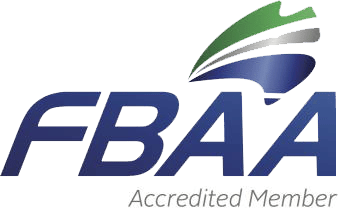When it comes to securing a mortgage in Australia, the dilemma of choosing between a mortgage broker and a bank is as old as the industry itself. In 2024, this decision has become more nuanced than ever. With the Australian housing market showing signs of dynamic change, and with interest rates fluctuating in response to global economic pressures, understanding your best options for a mortgage is crucial.
Statistics show that a significant portion of Australians are turning to mortgage brokers for their home loan needs. According to a 2023 report, mortgage brokers now facilitate more than 59% of all residential mortgages in the country. This shift reflects a growing trust in brokers’ ability to navigate a complex array of lending options. On the other side, traditional banks continue to hold a substantial market share, with their direct lending models appealing to those who seek a more hands-on approach in their financial dealings.
In this comprehensive guide, we’ll delve into the advantages and considerations of both mortgage brokers and banks.
Whether you’re a first-time home buyer, a seasoned investor, or considering refinancing, this article aims to provide you with the necessary insights to make an informed decision.
We’ll explore the evolving roles, benefits, and potential drawbacks of each option, all while keeping an eye on the latest trends and regulations shaping the mortgage landscape in Australia.
Stay tuned as we unravel the intricate details of this crucial financial decision, ensuring you’re equipped with the knowledge to choose the path that best suits your unique financial journey in 2024.
Understanding Mortgage Brokers–
In the ever-evolving world of Australian real estate and finance, mortgage brokers have emerged as pivotal players. As of 2024, they’re not just intermediaries; they’re financial guides in a complex landscape. Let’s dive into what mortgage brokers do and why they’re increasingly popular among home buyers.
Roles and Functions of Mortgage Brokers-
Mortgage brokers serve as a bridge between you, the borrower, and potential lenders. Their primary role is to understand your financial needs and match you with a lender that suits those needs best. They scour the market, comparing offers from multiple lenders, including some options that might not be directly available to the public. This comprehensive market knowledge enables them to offer tailored advice and solutions that align with your financial goals.
Benefits of Using a Mortgage Broker–
The benefits of using a mortgage broker are multifaceted. Firstly, they offer a personalized service that’s hard to find in the one-size-fits-all approach of direct bank dealings. They take the time to understand your specific situation – whether you’re a first-home buyer, an investor, or looking to refinance. A broker can also navigate the complexities of loan applications for those with unique circumstances, such as self-employment or irregular income.
Another significant advantage is the time and effort saved. Brokers handle the grunt work of loan comparison, negotiation, and paperwork. For many, this convenience is invaluable, particularly in today’s fast-paced world where time is a precious commodity.
Potential Drawbacks and Considerations–
While the advantages are compelling, there are considerations to bear in mind. Not all lenders work with brokers, which could mean missing out on certain direct-to-consumer loan products. Also, there’s the question of bias: some skeptics worry that brokers might favor lenders who offer higher commissions, although this concern is mitigated by industry regulations requiring brokers to act in the client’s best interests.
Now let’s Understanding Bank Lending
When considering a mortgage, many Australians still turn to the familiar and traditional route of bank lending. In 2024, banks continue to play a crucial role in the mortgage market, offering direct lending options to their customers. Let’s explore what bank lending entails and its unique advantages.
Roles and Functions of Banks in Mortgage Lending
Banks offer a more direct approach to mortgage lending. When you approach a bank for a home loan, you’re dealing with an institution that lends from its own suite of products. This means you’ll be navigating their specific criteria and rates. Banks cater to a wide range of customers – from first-time homebuyers to investors – and typically provide a straightforward, if somewhat standardized, service.
Benefits of Securing a Mortgage Through a Bank–
One of the primary benefits of going through a bank is the sense of control and familiarity it offers. You’re dealing directly with the lender, which can sometimes simplify communication and decision-making processes. For those who have a strong relationship with their bank, there may also be opportunities to negotiate better terms or rates, especially for long-standing customers or those with multiple banking products.
Banks often have comprehensive online platforms and physical branches, providing accessibility and convenience. For those who prefer a more hands-on approach in managing their financial decisions, banks offer a sense of autonomy and self-directedness that can be appealing.
Potential Drawbacks and Considerations
However, opting for a bank loan does come with its considerations. The process can be more time-consuming, as it involves comparing offerings from multiple banks yourself. This can be daunting, especially for those unfamiliar with the intricacies of home loans. Additionally, banks offer only their products, potentially limiting your options compared to the broader market selection a mortgage broker could provide.
Comparative Analysis: Brokers vs. Banks
Choosing between a mortgage broker and a bank is a decision that can significantly impact your home-buying journey. In 2024, as the financial landscape continues to evolve, understanding the nuances of each option is more important than ever. Let’s compare and contrast these two paths to help you make an informed decision.
How the Services Differ
Mortgage Brokers offer a service that is broad in scope and personalized. They act as intermediaries, sourcing loans from a wide range of lenders and tailoring their advice to your specific financial situation. This bespoke service is particularly beneficial for those with unique circumstances or those who find the variety of mortgage products overwhelming.
Banks, on the other hand, provide a more self-directed approach. You’re limited to the products offered by the bank, but this can be advantageous for those who have a strong banking history or prefer a direct relationship with their lender. The process with banks might be more straightforward but requires more individual effort in terms of research and negotiation.
Scenarios Where One Might Be Preferable Over the Other
- First-Time Home Buyers: Might benefit more from a mortgage broker due to the need for guidance and a wider array of loan options.
- Experienced Buyers or Investors: Those with specific banking relationships or a clear understanding of their financial goals might prefer direct bank lending.
- Complex Financial Situations: Individuals with non-standard income streams or credit histories may find more flexible solutions through a broker.
Recent Trends and Market Changes
The mortgage industry is influenced by economic factors, regulatory changes, and technological advancements. In recent years, there’s been a trend towards digitalization in both brokerage services and banking, making the process more efficient and accessible. Additionally, regulatory changes have been implemented to ensure transparency and fairness in broker commissions, enhancing trust in their services.
Ultimately, the choice between a mortgage broker and a bank will depend on your individual needs, preferences, and financial situation. Both have their unique benefits and potential drawbacks, and the right choice varies from one home buyer to another.
Comparative Analysis: Mortgage Brokers vs. Banks
| Criteria | Mortgage Brokers | Banks |
| Service Approach | Personalized service, acting as intermediaries between multiple lenders and the borrower. | Direct service with products from their own portfolio. |
| Personalization | High – tailored advice based on individual financial situations. | Moderate – standardized products, with some personalization for existing customers. |
| Range of Options | Wide – access to various lenders and products, including niche and lesser-known options. | Limited to own products, but often comprehensive. |
| Ease of Process | Generally easier for the borrower as brokers handle most of the research, comparison, and paperwork. | Requires more effort from the borrower to research and compare options. |
| Suitability | Especially beneficial for first-time buyers, those with complex financial situations, or those who value guidance. | Preferable for those with strong banking relationships or who prefer a direct and autonomous approach. |
| Flexibility | More flexible, can find solutions for unique circumstances like irregular income or poor credit history. | Less flexible, adhering to their set criteria and offerings. |
| Time and Effort from Client | Less time and effort required from the client. Broker handles the majority of the process. | More time and effort required for researching and negotiating directly with the bank. |
| Costs and Fees | Paid by lender commissions; potential for bias towards higher-commission lenders. | Standard banking fees apply; potential for negotiation on rates for existing customers. |
What to Consider When Choosing Your Mortgage Path in 2024
The choice between a mortgage broker and a bank is significant and personal. As we move further into 2024, it’s essential to consider several factors to determine which path aligns best with your financial goals and situation. Here’s a breakdown of what to ponder when making your decision.
Factors to Consider
- Personal Financial Situation: Assess your financial health, including credit score, income stability, and debt-to-income ratio. This will influence the type of lender that can best meet your needs.
- Knowledge and Experience: If you’re new to the home-buying process, a broker’s guidance can be invaluable. Experienced buyers with specific preferences might prefer direct interaction with a bank.
- Loan Options and Flexibility: Brokers offer a wider variety of loan products, which can be beneficial if you have unique circumstances. Banks might provide fewer options but can offer competitive rates to existing customers.
- Time and Effort: Consider how much time and effort you’re willing to invest. Brokers can save you time by handling the comparison and negotiation process, while banks require you to do more legwork.
Tips on Making an Informed Decision
- Research: Gather information about both brokers and banks, including their services, fees, and customer reviews.
- Consultation: Don’t hesitate to meet with both brokers and bank representatives to ask questions and understand their offerings.
- Long-Term Goals: Consider your long-term financial goals and how your choice of lender aligns with these objectives.
Making the Decision
The decision between a mortgage broker and a bank is not just about finding a loan; it’s about embarking on a financial journey that aligns with your aspirations and circumstances. Consider all aspects, consult professionals, and choose the path that leads you confidently towards your property goals.
Final Thoughts
As the financial landscape continues to evolve, staying informed and seeking tailored advice is crucial. Whether you opt for the expertise of a mortgage broker or the direct approach of a bank, ensure your choice reflects your financial aspirations and brings you one step closer to your dream home.
Remember, this is a significant step in your financial journey, and seeking professional advice tailored to your situation is always recommended.












